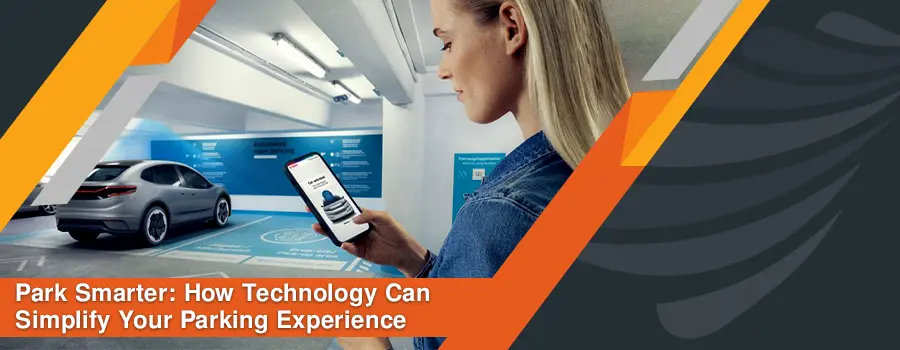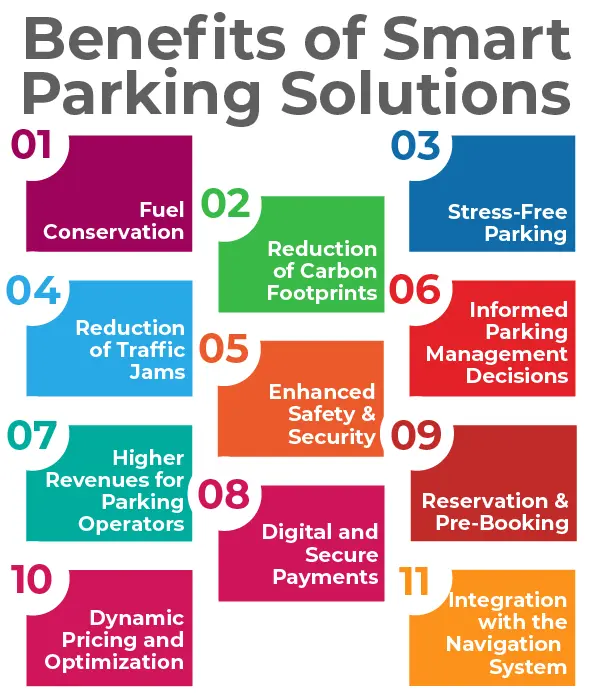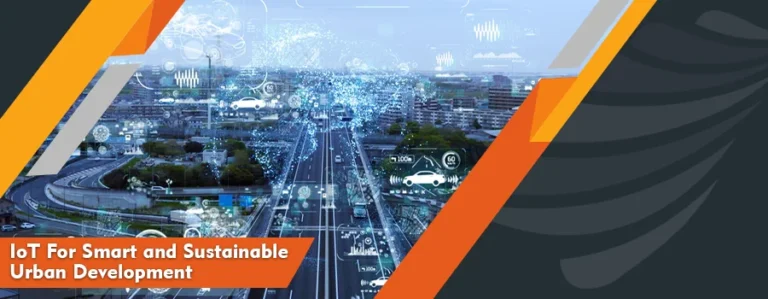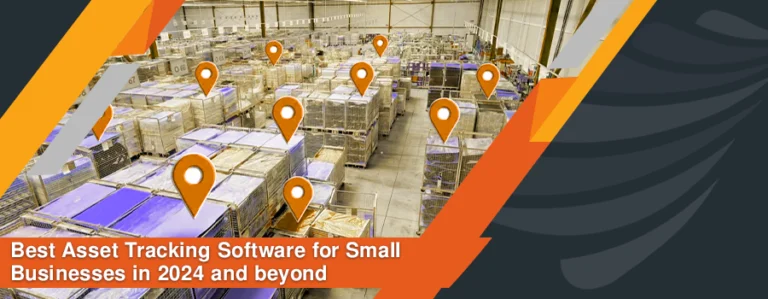Are you tired of the hassle of finding parking? Thanks to smart parking solutions, imagine a world where parking is a breeze. In this article, we’ll explore how these solutions, such as contactless reviews, park-and-pay options, and innovative apps, can revolutionize your parking experience. Discover how a parking enforcement app can simplify your parking experience and how smarter pay solutions can save you time and frustration. With these solutions, you can bid farewell to the stress of finding a parking spot and focus on what’s important to you, feeling a sense of relief.
Learn about parking, pay-by-phone features and apps for street parking, and how to park easily in a parking space. Ready to park smarter? Let’s dive in and explore the possibilities of technology-driven parking solutions!”
What are Smart Parking Solutions?
A smart parking solution is an automated parking system that harnesses the power of technology. It uses sensors, actuators, car parking apps, data analytics, cameras, and software to provide real-time information about available parking spots. For instance, a smart parking solution could be a mobile app that guides you to the nearest available parking spot in a city center. Another example is a parking lot with sensors that detect the presence of a vehicle and adjust the parking fee accordingly. These solutions aim to ease the process of finding parking, drastically reduce time spent searching for parking spaces, boost revenue for parking operators, alleviate traffic congestion, and enhance users’ driving and parking experiences, making you feel empowered and in control of your parking experience.
Where are the Smart Parking Systems Used?
Smart parking systems are used in various urban and suburban environments, including:
1. City Centers
Automatic parking solutions are commonly deployed in downtime areas of cities to manage limited parking availability and high traffic. These systems help drivers find parking lots without wasting time and effort.
2. Commercial Districts
Shopping malls, entertainment complexes, and business districts implement smart parking solutions to enhance the parking experience of employees, customers, and visitors. Features like real-time navigation (which provides the most efficient route to an available parking spot) and reservation systems (which allow users to book a parking spot in advance) help to optimize parking utilization in these areas.
3. Hospitals
Medical centers and hospitals benefit from smart parking solutions that ensure visitors, patients, and staff can easily access parking—designated parking and real-time navigation leverage patients’ specific needs to provide a smooth parking experience.
4. Airports
Airports use smart parking systems to manage large parking facilities efficiently and assist visitors in finding parking spaces. Digital signage and reservation options streamline parking, especially during peak travel times.
5. Academic Institutes
Academic institutes implement smart parking systems to overcome student, faculty, and staff parking challenges. With real-time navigation and pre-booking of parking lots, they avoid delays and reach their classes on time.
6. Residential Areas and Buildings
Residential areas and apartments even deploy smart parking solutions to manage parking for residents and guests/ Features like permit management, occupancy monitoring, and visitor parking reservations enhance parking accessibility and security in these areas.
6. Public Transit Hubs
Smart parking systems integrate with public transit hubs and stations to facilitate multi-model transportation. These systems encourage sustainable travel behavior by providing convenient parking options for commuters using buses, trains, and other public transportation.
7. Event Venues
Stadiums, concert halls, and arenas utilize smart parking spaces to efficiently manage large influxes of vehicles during events. Dynamic pricing, pre-booking options, and shuttle services help optimize parking operations and alleviate traffic congestion around these venues.
Benefits of Smart Parking Solutions
Let’s look at the benefits of implementing smart parking solutions.
1. Fuel Conservation
Smart parking solutions provide real-time navigation to help drivers reach the parking lot. This saves time and reduces fuel consumption. With less fuel wasted, drivers can save money and enjoy a smooth parking experience.
2. Reduction of Carbon Footprints
Conventional parking methods have an environmental impact that goes beyond fuel consumption. The never-ending search for a parking spot increases carbon emissions, exacerbating air pollution and climate change. To mitigate this problem, smart parking solutions shorten the time spent looking for a parking place, lowering the carbon footprint caused by vehicle emissions. These technologies are not just about convenience but about making a real difference in our environment and encouraging more environmentally friendly transportation behaviors.
3. Stress-Free Parking
Parking in crowded cities can be stressful and unpleasant, detrimental to drivers’ health. Smart parking solutions seek to reduce this stress by giving drivers access to real-time information about available parking places. These solutions improve overall urban mobility by removing the uncertainty and unpredictability associated with parking and making it easier and less unpleasant for drivers.
4. Reduction of Traffic Jams
Parking search traffic causes major traffic jams in cities, worsening the situation. Smart parking solutions reduce the number of cars around parking spaces, helping to alleviate this problem. These technologies facilitate smoother traffic flow and enhance urban mobility by giving drivers precise information about parking availability and reducing congestion on streets and parking facilities.
5. Enhanced Safety and Security
Smart parking solutions use cutting-edge surveillance technologies like cameras and sensors to monitor parking facilities in real time. This improves pedestrian and vehicle safety and security while also discouraging criminal activities. These solutions help create a safer and more secure urban landscape by offering a secure parking area.
6. Informed Parking Management Decisions
Operators can also benefit from the ability to remotely monitor parking lot conditions. This allows them to create more effective business plans and make better choices regarding closing an existing parking garage or opening a new one in a certain area. This implies that companies and local government agencies can optimize their budgetary allocations and invest more wisely in parking area organization.
7. Higher Revenues for Parking Operators
Dynamic pricing can be implemented using real-time data analytics, improving planning and services. In this instance, pricing can be adjusted by continuing demand, supporting profit maximization.
8. Digital and Secure Payments
Drivers can now complete transactions through internet portals or parking apps without carrying cash or worrying about the security of their payment information. Advanced encryption methods guarantee the security of private information, while digital invoices offer accountability and transparency. By parking mobile pay, drivers can park smarter and get different packages, parking discount codes, and vouchers. This improves the entire parking payment experience and how they pay by app, making the process more effective, safe, and user-friendly, saving time and money.
9. Reservation & Pre-Booking
With smart parking systems, drivers may reserve parking spaces ahead of time, removing the worry about running out of space when they get there. Before they even leave their house, drivers may reserve parking spots at their destination using parking mobile apps and webpages. This enables improved planning and route optimization and guarantees a spot upon arrival. Making reservations in advance for parking guarantees a hassle-free experience for drivers, reducing delays and irritation, whether for a crowded downtown area or a well-liked event venue.
10. Dynamic Pricing and Optimization
With technological advancements, parking operators can apply dynamic pricing models based on availability and demand. Thanks to data analytics and machine learning algorithms, parking systems can make real-time price adjustments to accommodate variations in demand. This maximizes parking utilization and lessens traffic congestion by encouraging cars to park in less congested locations or during off-peak hours. Drivers also gain from dynamic pricing since it provides more economical parking options and promotes wise parking choices.
11. Integration with the Navigation System
Many contemporary GPS apps and navigation systems now include parking features that work well with parking platforms. With the help of their navigation software and app for finding parking, drivers may enter their destination and get instructions and parking suggestions in real-time. In addition to making parking easier, this integration improves the navigation experience overall by giving drivers thorough instructions from point A to point B. Through the seamless integration of parking solutions and navigation, technology is improving efficiency and creating a stress-free driving experience for drivers worldwide.
Technology Behind Smart Parking Solutions
Let’s explore the technology behind intelligent parking systems:
1. Sensor Systems
Internet of Things (IoT) technology is the backbone of smart parking solutions, allowing for tracking car occupancy in parking lots. Devices such as GPS or OBD sensors gather car location information and send it over a cloud gateway to a network server. Drivers and parking facility administrators can access this data through real-time insights. Large corporations now mostly utilize IoT-based car trackers for fleet management. Still, as technologies like 5G become more widely adopted, they will likely become more available to individual drivers.
2. Smart Counter Systems
Smart counting systems that detect when vehicles enter and exit parking facilities make real-time monitoring of available parking spaces possible. This information helps facility managers anticipate future car surges and maximize parking efficiency and drivers by giving precise information on parking availability.
3. Automated Parking Technologies
These technologies minimize the land needed for parking facilities while maximizing space use. These technologies reduce the requirement for large amounts of land by using automation to move cars vertically within the facility. Automated parking facilities also increase security and lower emissions by reducing idle periods and parking search times.
4. IoT-Powered Control Systems
By successfully enforcing parking laws, control systems enabled by the Internet of Things (IoT) contribute to urban safety and order. These systems use a network of sensors and quick data processing algorithms to identify parking infractions in real time, issue citations, and quickly alert offenders. Parking control systems ensure that parking restrictions are followed and contribute to preserving order on city streets by utilizing technology.
Used Cases of Smart Parking Solutions
Smart parking solutions are implemented at different locations. The two recently used cases are discussed here:
1. Johns Hopkins Aramco Healthcare Implementation
ParkSmart is deployed in Johns Hopkins Aramco Healthcare in Dhahran, Saudi Arabia. Its real-time availability and effective space distribution revolutionize parking. With features like mobile app payments and traffic control support, ParkSmart improves accessibility and lessens traffic around the medical institution. In addition, its data insights and interaction with neighborhood businesses yield useful information for community support and future development, guaranteeing an optimal parking experience for both patients and guests.
2. Parking Solution Deployment at St. Pete Beach
By providing real-time parking availability and optimal space allocation, ParkSmart reinvents the St. Pete Beach parking experience. ParkSmart uses cutting-edge technology, including sensors and data analytics, to simplify parking with features like digital signage and parking payment apps. This helps with environmental sustainability and traffic control and improves beachgoer’s convenience. Furthermore, incorporating local companies into it creates a positive ecology that enhances the entire experience for visitors and boosts the local economy.
Future Aspects of Smart Parking Solutions
Future developments in smart parking technology have many opportunities for innovation and progress. The ongoing integration of IoT devices and smart city infrastructure is an interesting development for the parking industry. Parking management systems will become even more accurate and effective with the further advancement of sensor technology and data analytics. These systems will provide real-time information on parking availability and optimize traffic flow in urban areas. Furthermore, parking systems will be able to anticipate and adjust to shifting parking demands thanks to developments in artificial intelligence (AI) and machine learning (ML), which will improve drivers’ overall parking experiences.
Furthermore, parking solutions must change to meet the special requirements of electric and autonomous vehicles as they become more commonplace. Examples of these demands include automated valet services and specific charging stations. The idea of “park smarter” will keep redefining parking, making it more frictionless, sustainable, and user-friendly than ever by embracing these emerging trends and utilizing cutting-edge technology.
Final Thoughts
The advancement of parking technology offers a revolutionary chance to streamline and improve the parking experience worldwide. We can increase urban mobility’s efficiency, convenience, and sustainability by utilizing cutting-edge solutions like automated parking systems, smart parking sensors, and Internet of Things parking management software. This vision is embodied in the phrase “park smarter,” which highlights the value of using technology to improve parking operations and give drivers a more seamless and convenient experience. We can transform urban transportation, ease traffic, and build more livable, sustainable cities for future generations if we embrace parking technology’s future. To improve tomorrow, let’s embrace technology and park more wisely.





